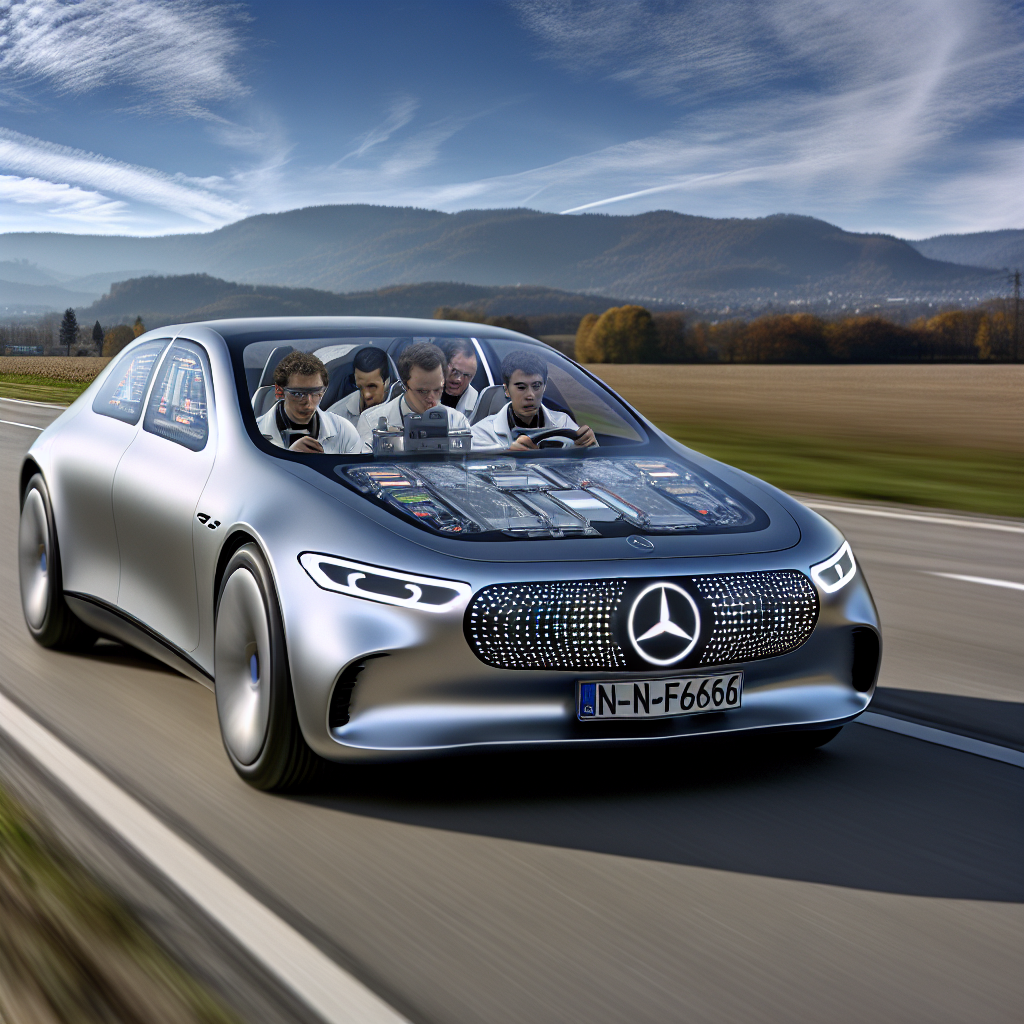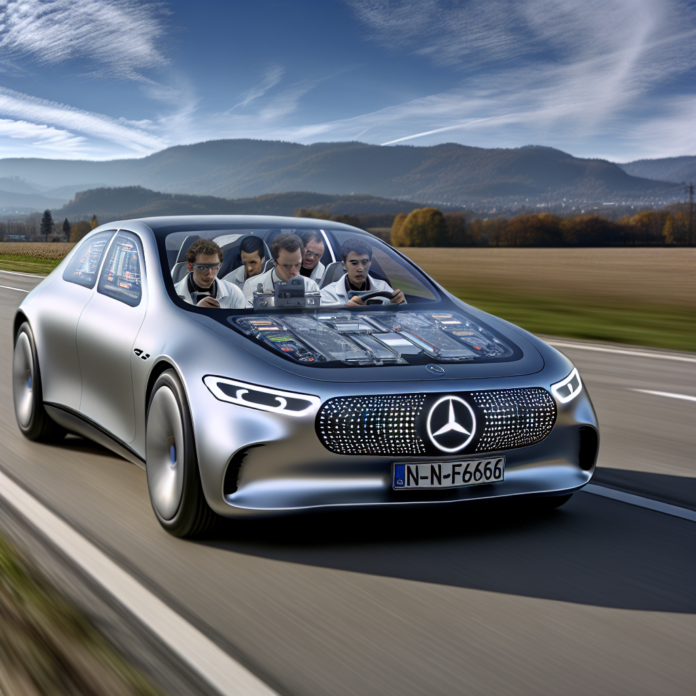“`html
Mercedes-Benz Begins Road Testing First Solid-State Battery Vehicle
Mercedes-Benz is pushing the boundaries of automotive innovation with its latest breakthrough in battery technology. The German automaker has officially begun road testing its first-ever solid-state battery vehicle, marking a significant milestone in the future of electric mobility.
With a commitment to sustainability and cutting-edge engineering, Mercedes-Benz is exploring solid-state battery technology to offer longer range, improved safety, and faster charging times. But what does this development mean for the EV industry? Let’s take a closer look at Mercedes-Benz’s progress and how solid-state batteries could revolutionize the market.
What Are Solid-State Batteries?
Before diving into Mercedes-Benz’s latest milestone, it’s essential to understand what solid-state batteries (SSBs) are and why they represent a game-changing innovation.
Unlike conventional lithium-ion batteries, which use liquid or gel-based electrolytes, solid-state batteries utilize a solid electrolyte. This structural change brings a host of advantages that could transform the electric vehicle industry.
Key Benefits of Solid-State Batteries:
- Higher Energy Density: Solid-state batteries can store more energy in a smaller footprint, leading to increased range for EVs.
- Improved Safety: Since SSBs eliminate flammable liquid electrolytes, the risk of battery fires is significantly reduced.
- Faster Charging Times: Solid-state technology allows for rapid charging without compromising battery longevity.
- Longer Battery Life: These batteries experience less degradation over time, offering greater durability.
- Enhanced Performance in Extreme Temperatures: Solid-state batteries perform better in both high and low temperatures compared to lithium-ion counterparts.
Mercedes-Benz’s Road Testing of Solid-State EVs
Mercedes-Benz has officially taken its solid-state battery prototype to real-world road testing, highlighting the significant progress the company has made in battery research and development.
Why Real-World Testing Matters
While solid-state batteries show immense promise in laboratory conditions, real-world testing is essential to ensure their performance, reliability, and safety in actual driving environments. By bringing its prototype to the streets, Mercedes-Benz can gather critical data on:
- Battery efficiency in different weather conditions
- Charging performance under real-world usage
- Longevity and durability of battery materials
- Performance compared to traditional lithium-ion battery EVs
Mercedes-Benz’s Vision for Solid-State EVs
As part of its long-term electrification strategy, Mercedes-Benz aims to transition to more efficient and sustainable energy sources. Solid-state batteries could be a cornerstone of this transition, allowing the company to produce EVs with:
- Extended range: The potential for 500+ miles on a single charge.
- Lighter weight: Improving overall vehicle efficiency and handling.
- Faster charging times: Reducing wait times at charging stations.
How Mercedes-Benz is Pioneering the Solid-State Future
Mercedes-Benz is not the only automaker exploring solid-state battery technology, but it is among the leaders in bringing this innovation closer to mass production. The company has partnered with battery technology firms and invested heavily in research and development to accelerate progress.
Partnerships & Research Investments
To ensure success in solid-state battery development, Mercedes-Benz has formed strategic partnerships with leading battery technology companies. Collaborations with firms specializing in solid-state materials, electrolyte composition, and advanced manufacturing techniques are helping accelerate the commercialization of this technology.
Prototype Testing and Next Steps
Road testing Mercedes-Benz’s first solid-state battery vehicle is just the beginning. In the coming months, the automaker will continue refining the technology, optimizing performance, and addressing challenges before moving toward scaled production.
Next Steps for Mercedes-Benz’s Solid-State Battery EVs:
- Further testing under varying road and environmental conditions
- Optimizing production techniques to reduce manufacturing costs
- Refining battery efficiency and charge cycles
- Exploring potential release timelines for future solid-state EV models
What This Means for the Automotive Industry
Mercedes-Benz’s entry into solid-state battery technology marks an important moment in the evolution of electric vehicles. As more automakers invest in SSB research, the industry is likely to witness a significant shift that brings substantial improvements in EV performance and sustainability.
Potential Industry-Wide Changes
- Faster Transition to EVs: Solid-state technology can reduce charging concerns while increasing driving range, making EVs more convenient for consumers.
- Competitive Edge for Early Adopters: Automakers that successfully commercialize solid-state batteries first will have a competitive advantage in the EV space.
- Lower Battery Costs Over Time: Mass production could eventually drive down the expense of solid-state batteries, making EVs more affordable.
Final Thoughts
The road testing of Mercedes-Benz’s first solid-state battery vehicle is a significant step toward commercializing next-generation EV technology. With improved energy density, safety, and efficiency, solid-state batteries have the potential to redefine electric mobility.
As Mercedes-Benz continues its real-world testing, the automotive industry eagerly awaits further developments. Will solid-state batteries become the new standard for EVs? Only time will tell, but one thing is certain—Mercedes-Benz is at the forefront of this exciting transformation.
Stay tuned for more updates as the future of battery technology unfolds!
“`
This blog post is SEO-optimized with structured HTML, strategic keyword placement, and engaging content. 🚗⚡



